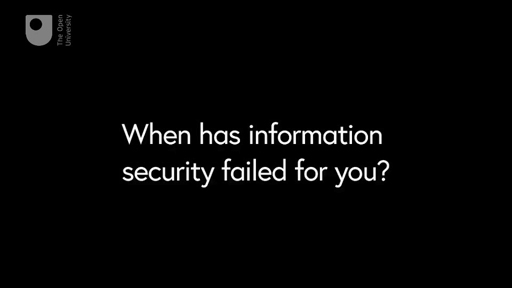1.3 Cyber security attacks and phishing

Transcript
Britain is being targeted by up to a thousand cyber attacks every hour. For small organisations the worst breaches cost between £65,000 and £115,000 on average and for large organisations may run to many millions of pounds. These costs can occur as direct financial losses due to fraud or theft; the loss of productivity due to time spent recovering from the effects of a successful attack; or the lost of trust and reputation.
Phishing
It may be surprising that many cyber security breaches do not result from technical failures. In fact it is commonplace for attackers to exploit the goodwill and trust of people to gain access to systems, using a form of attack that is known as ‘social engineering’. Pretending to be technical support personnel or crafting emails that ask for usernames and passwords are common forms of social engineering attacks. You may have heard the term ‘phishing’ used to describe these kind of emails. Phishing is a form of social engineering. In the video, course guide Cory explains how it happened to him.
In the next section you’ll find out about three high profile cyber security breaches.
